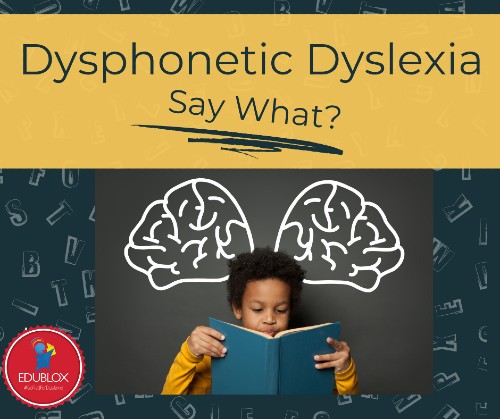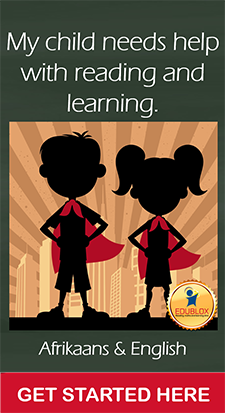
 Dyslexia is a common concern as it affects many children and adults. And although no two dyslexics have exactly the same symptoms, there are key symptoms that you can, quite easily, pick up.
Dyslexia is a common concern as it affects many children and adults. And although no two dyslexics have exactly the same symptoms, there are key symptoms that you can, quite easily, pick up.
Reading difficulties related to auditory-processing weaknesses have been called auditory dyslexia or dysphonetic dyslexia. They tend to have good visual processing skills, but have difficulty remembering letter sounds, analysing the individual sounds in words, and blending sounds into words.
Author Corinne Roth Smith lists the reading and spelling patterns of children with dysphonetic dyslexia:
- Difficulty discriminating between individual sounds in beginning reading instructions (occurs very seldom).
- Difficulty processing rapid auditory inputs so that consonant sounds that cannot be sustained (p-b) are not perceived; these may then be omitted in reading.
- Poor ability to analyse the sequence of sounds and syllables in words; consequently they become reversed in reading words; this is akin to the problem faced orally when poor auditory analysis has taught the child such phrases as “lead a snot into temptation” and “Harold be Thy name” in the Lord’s prayer, or “lmnop” being one lumped cluster in the alphabet song.
- Poor ability to remember individual sounds or sequences of sounds.
- Difficulty blending individual sounds into words.
- Difficulty listening to words and omitting one sound and substituting it for another (say cat; now take off the /c/ and put on an /f/); such abilities are essential for word analysis because that is what figuring out how to phonetically decode a word is all about; children usually develop this skill with initial consonants, and then medial vowels or consonants.
- Difficulty remembering the sounds that individual letters and phonetically regular and irregular letter combinations represent.
- Inability to rapidly retrieve letter sounds while analyzing words, so that the beginning of the word is forgotten by the time the last letter of the word is recalled (naming problem).
- Difficulty analysing unknown words because of poor knowledge of phonetic rules and difficulty sequencing sounds.
- Difficulty applying the phonetic rules from words that can be read to pseudowords that follow the same pattern but are not real words.
- Vowel sounds are particularly troublesome.
- Word substitutions that are conceptually (person, human) or visually (horse, house) related, but not phonetically related.
- Limited sight vocabulary because the student cannot memorise an abundance of words without the benefit of phonetic cues.
- Guessing at unfamiliar words rather than employing word-analysis skills.
- Spelling remains below reading level because it is attempted by sight rather than by ear.
- Correct spellings occur primarily on words that the child has encountered repeatedly and therefore can revisualize.
- Bizarre spellings that seldom can be identified, even by the child, because they do not follow phonetic patterns.
- Extraneous letters and omitted syllables in spelling.
.
How can Edublox help?
The Edublox point of view, based on the latest research, is that dyslexia is not a DISability but simply an INability. While there are other causes, the most common cause of dyslexia is that the foundational skills of reading and spelling have not been mastered properly.
Learning is a stratified process. One step needs to be mastered well enough before subsequent steps can be learned. This means that there is a sequence involved in learning. It is like climbing a ladder; if you miss one of the rungs of the ladder, you will fall. If you miss out on one of the important steps in the learning process, you will not be able to master subsequent steps.
A simple and practical example of this is the fact that one has to learn to count before it becomes possible to learn to add and subtract. If one tries to teach a child to add and subtract before he has been taught to count, one will quickly discover that no amount of effort will ever succeed in teaching the child these skills.
This principle is also of great importance on the sports field. If we go to a soccer field to watch the coach at work, we shall soon find that he spends a lot of time drilling his players in basic skills, like heading, passing, dribbling, kicking, etc. The players who are most proficient at these basic skills usually turn out to be the best players in the actual game situation.
In the same way, there are also certain skills and knowledge that a child must acquire first, before it becomes possible for him to become a good reader. Edublox offers multisensory cognitive training, aimed at developing and automatising the foundational skills of reading and spelling, and application in the form of reading, spelling and comprehension exercises.






Leave a Reply